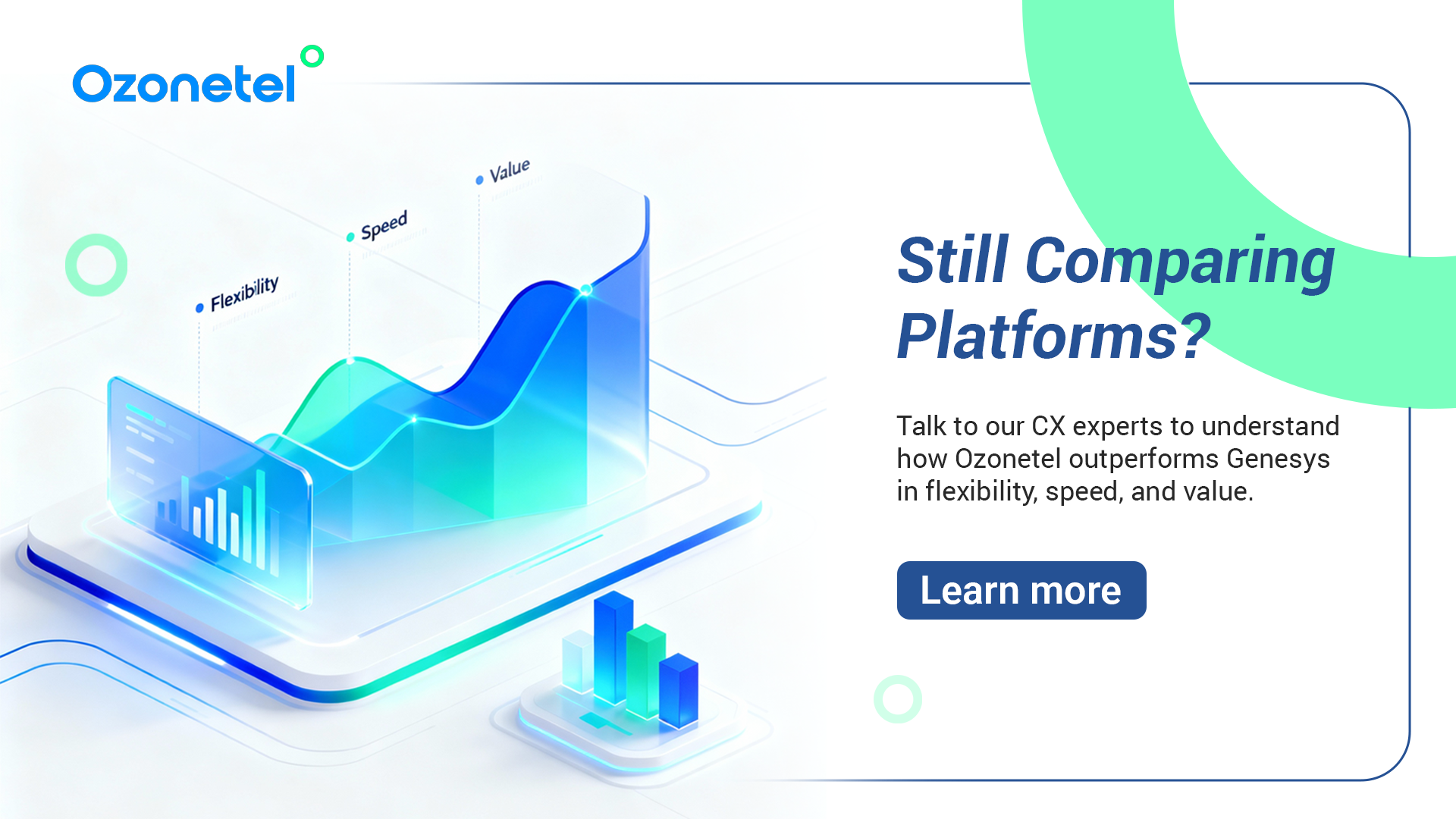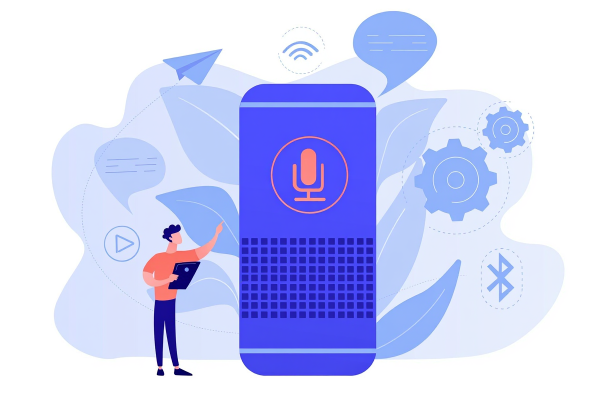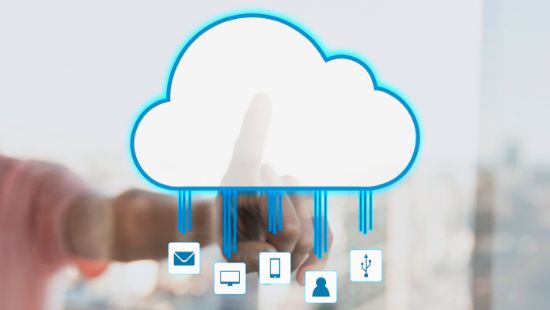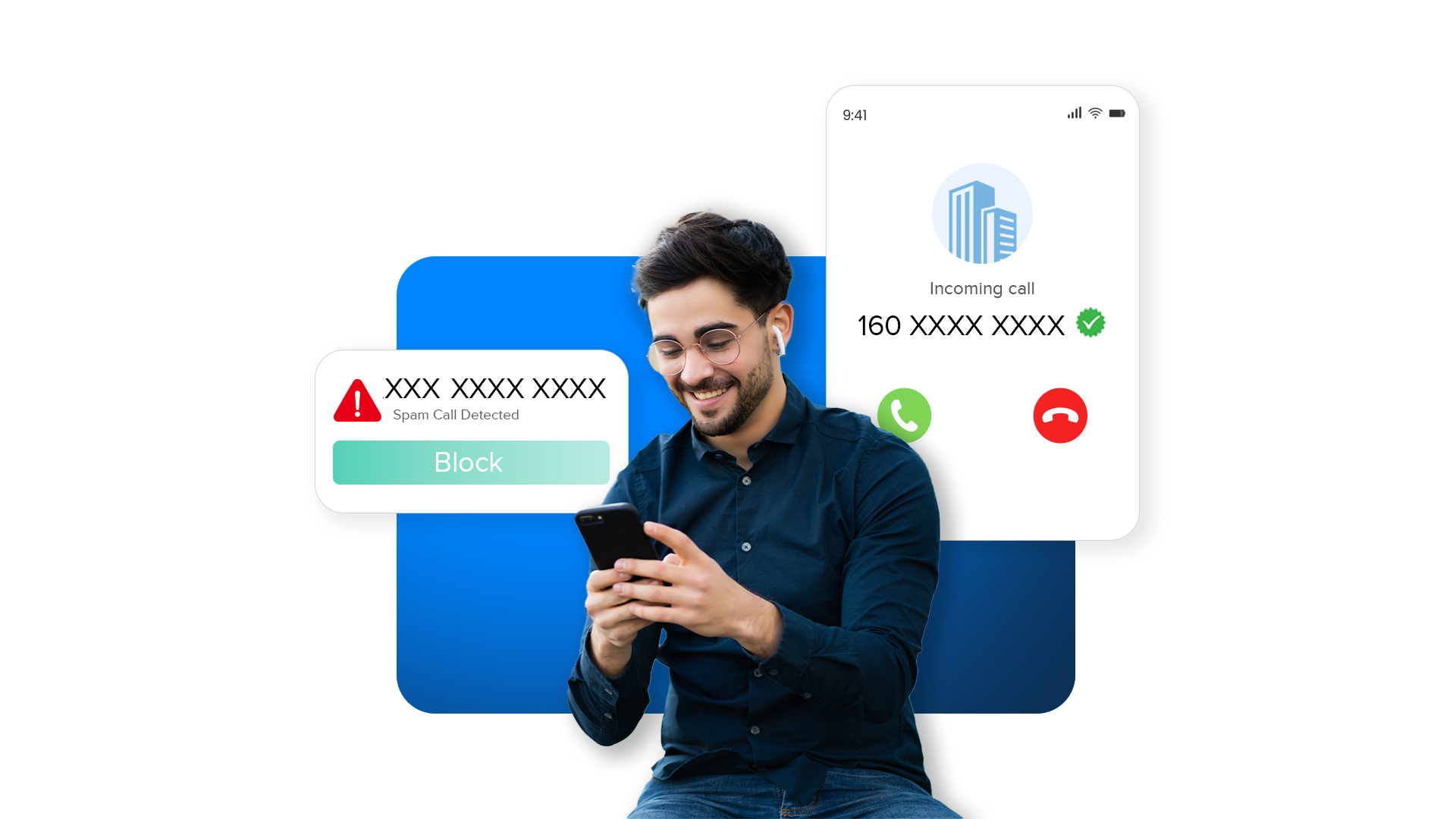- Resources
- Ozonetel vs. Genesys: A Detailed Comparison [2026 Guide]
Ozonetel vs. Genesys: A Detailed Comparison [2026 Guide]

What should you look for when choosing a customer experience (CX) platform — performance, flexibility, or cost efficiency? or most businesses, the real challenge isn’t finding a CX solution — it’s finding one that delivers enterprise-grade capabilities without the complexity, high costs, or lengthy deployment cycles that often come with traditional platforms.
That’s where a cloud-native CX platform like Ozonetel makes all the difference. It allows businesses to launch faster, scale seamlessly, and manage customer interactions across channels with ease.
That’s why comparing Ozonetel and Genesys makes perfect sense. Both offer robust CX platforms, but their architecture, approach, and overall value differ greatly. Let’s explore how each platform stacks up against each other.
In this article, we will explore:
Key Reasons to Look for Genesys Alternatives
Despite its global presence, many Genesys users face real-world challenges that affect agility, scalability, and total cost of ownership.
Here’s what users commonly report:
- Complex Setup: The platform can be difficult to configure and operate, often requiring technical expertise and extended setup time.
- Limited Features: Missing functionalities and rigid navigation make it less adaptable for large enterprises with advanced CX requirements.
- Inadequate Reporting: Customizing reports or extracting meaningful insights isn’t always straightforward, limiting data-driven decision-making.
- Restricted Customization: Teams find it challenging to tailor workflows, dashboards, or analytics to their unique business needs.
- High Implementation Cost: Deployment and maintenance demand specialized skills, leading to higher total cost of ownership.
- Integration Issues: Users have reported frequent glitches with APIs and login stability, affecting daily reliability.
- Missing Core Capabilities: Key functions around troubleshooting, reporting, and optimization are either limited or require third-party workarounds.
Ozonetel vs Genesys: Feature-Wise Comparison
This section provides a side-by-side breakdown of Genesys and Ozonetel across essential feature categories.
| Category | Genesys | Ozonetel | Key Takeaways |
|---|---|---|---|
| Platform | Not cloud-first; started on-premises, now offers cloud | Cloud-native CCaaS built on in-house CPaaS | Ozonetel is fully cloud-native, suitable for remote/hybrid teams, faster deployment |
| Deployment Time | Moderate – partner-managed | Quick – API-based plug & play modules | Ozonetel has faster go-to-market |
| Telephony | Uses own infra or integrates with major telcos | Own infra or integrates with major telcos; edge with IP calling | Both telco-agnostic; Ozonetel adds IP calling advantage |
| Scalability | Enterprise-grade, supports thousands of agents | Equally scalable, pay-as-you-go pricing | Both offer horizontal scalability |
| Voice Capabilities | Inbound, Outbound, Predictive Dialer, Progressive Dialer, IVR, Click-to-Call | Inbound, Outbound, Predictive Dialer, Progressive Dialer, IVR, Click-to-Call, Advanced scheduling features, Chat on Call & Call on Chat | Ozonetel offers enhanced scheduling and omnichannel+ support |
| Omnichannel Support | Voice, Email, SMS, WhatsApp, Webchat, Social Media | Voice, Email, SMS, WhatsApp, Webchat, Social Media (40+ channels integration) | Ozonetel has edge with Omnichannel+ (agents handle both voice and digital simultaneously) |
| CRM Integration | Native integration via partners | Native integrations with Salesforce, Hubspot, Zoho, Freshdesk, Kapture, MS Dynamics, Leadsquared, etc. | Ozonetel offers wider plug-ins and field-force integration |
| AI, Analytics & Insights | Dashboards, reports, analytics; Less customizations | Real-time dashboards, 100+ reports, AI transcription, summaries, sentiment analysis, SWOT, customizable dashboards | Both strong; Ozonetel more flexible & customizable |
| Workforce Management | Good WFM with manual & AI | In-built WFM, supports external tools, manual & AI-led QA | Both have similar capabilities |
| Support | 24×7 via partners | 24×7 direct support, faster SLA | Ozonetel more responsive |
| Pricing Model | Subscription-based, may include infra | Modular SaaS – pay per agent or feature | Ozonetel offers more flexible pricing |
| APIs & Customization | Limited open APIs | Extensive open APIs, customizable workflows | Ozonetel is more developer-friendly |
Ozonetel vs Genesys: Product-wise Comparison
Beyond features, the actual product capabilities reveal how well each platform can serve different business needs.
| Category | Genesys | Ozonetel |
|---|---|---|
| Contact Center | Omnichannel outbound & inbound contact center • Lacks user-friendly IVR • No chat-on-call or call-on-chat support • Offers work-hour scheduling & holiday management | Omnichannel inbound & outbound contact center • Innovative Customer Journey Designer (IVR & Digital) • Omnichannel+: Chat on call & call on chat with the same customer simultaneously |
| Conversational AI Bot | • VoiceBot & chatbot capabilities available • Higher TCO for implementation & operations | • Humanized & personalized Voice Bot • Drag & drop bot designer • Agentic AI chatbot for context-driven automation |
| Cloud Telephony (CPaaS) | No CPaaS capability | • India’s first CPaaS provider (KooKoo) • Built CCaaS capabilities on top of it |
| IP Telephony | Lacks IP calling capability | • IP calling across web, app, and digital platforms for inbound & outbound • Low latency, reduced dependency on telcos |
| Conversational Intelligence | Available but with limited customization | • Two offerings: – Voice of Customer (AI-driven insights from conversations) – Agent Assist |
| Agentic AI | Offers greater autonomy, contextual awareness, and “agent-to-agent (A2A)” collaboration | • CXi Agents for specialized tasks (drive higher conversion, CSAT, CLTV) • Purpose-built AI agents for customer journey, collections, product inquiries, KYC, and more |
| UCaaS | No direct UCaaS capability | • Built-in UCaaS integration • Field Force Management with CRM sync (e.g., Salesforce) for offline calls |
Genesys Vs Ozonetel: Key Feature Comparison
Both Ozonetel and Genesys are powerful players in the customer experience (CX) and contact center software space. Let’s understand how Ozonetel and Genesys measure up across key CX capabilities.
1. AI Capabilities
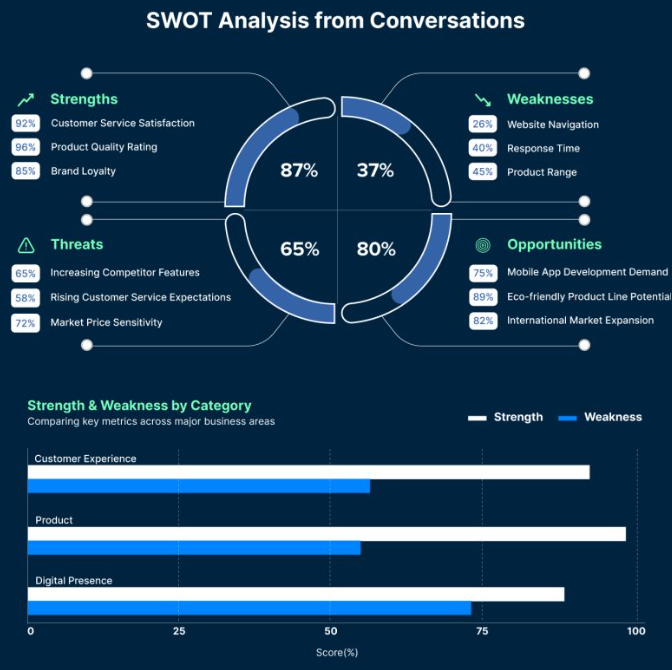
Ozonetel embeds AI natively across every layer of its CX platform, ensuring intelligence is built into every interaction. Its AI models analyze real-time sentiment, transcribe conversations, and extract actionable insights from unstructured data, delivering value at every customer touchpoint.
By combining the power of autonomous AI with human oversight, Ozonetel drives faster resolutions, higher conversions, and measurable improvements in CSAT, CLTV, and overall service efficiency.
- Agent Assist: Real-time AI prompts guide agents for faster, accurate responses.
- Voice of Customer (VoC): AI analyzes conversations for sentiment, trends, and customer insights.
- Voice AI Agents: Automate calls with human-like, context-aware interactions.[SG1]
- Quality Audits: AI evaluates calls for compliance, performance, and service consistency.
- Knowledge AI: Provides instant, relevant information to agents during interactions.
- Call Summarization AI: Automatically generates call summaries, action items, and follow-up tasks.[SG2]
Genesys:
Genesys provides AI tools like predictive routing, speech analytics, and basic chatbots. Genesys AI Guides lets non-technical users generate flows from NL descriptions or documents, which is good for enterprises. While Genesys offers conversational AI capabilities for voice and chat, it lacks next-generation innovations such as embedded Generative AI support for dynamic utterance creation and an integrated test suite for seamless model validation. This limits the platform’s adaptability and real-time learning potential.
Additionally, analytics markups within chat and voice flows remain restricted, reducing visibility into interaction quality and customer sentiment.
The deployment process for Architect flows can also be error-prone — if not carefully managed, ID mismatches and configuration issues can delay rollout and disrupt live environments.
2. Self-Service Capabilities
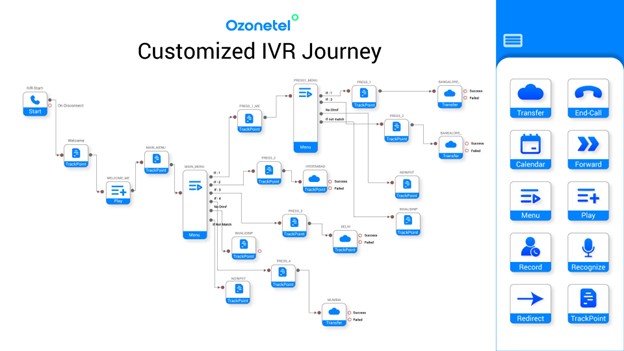
Ozonetel transforms self-service with Voice AI Agents, Digital AI Agents, and Intelligent IVR. Its drag-and-drop customer journey designer allows businesses to automate workflows — from lead qualification to collections — without coding. These bots are context-aware, multilingual, and human-like, ensuring smooth transitions from self-service to agent support.
While Genesys supports IVR and chatbot-based self-service, users often find the setup overly complex and dependent on professional services for configuration. Simple updates like modifying call flows or chat journeys require technical expertise. This slows down response to changing customer needs and makes experimentation costly.
3. Omnichannel Capabilities
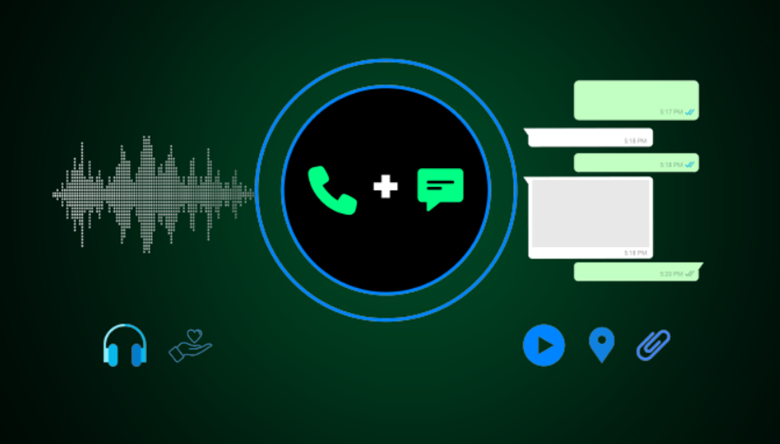
Ozonetel’s unique offering includes Omnichannel+, designed to enable truly unified customer communication. This advanced capability goes beyond traditional omnichannel by allowing agents to chat on call or call on chat with the same customer, maintaining real-time context across every interaction. With integrations across 40+ channels — including WhatsApp, webchat, social platforms, and in-app calls — Ozonetel delivers a single, comprehensive view of the customer journey, ensuring seamless transitions and consistent experiences across all touchpoints.
Demo recording –
Genesys:
Genesys has strong multichannel coverage — including voice, email, SMS, and social media — but managing seamless transitions between these channels is challenging. Users often face delays and inconsistencies due to heavy reliance on third-party configurations. This creates data silos and impacts real-time customer visibility.
4. Integrations
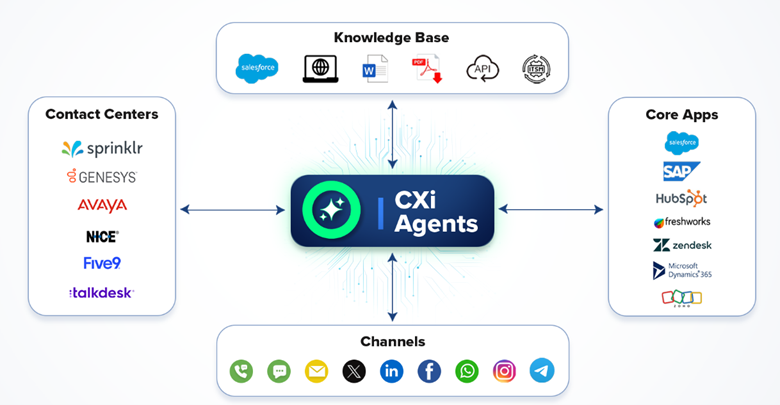
Ozonetel simplifies system connectivity with native plug-and-play integrations for leading CRMs and business tools such as Salesforce, Zoho, Freshdesk, Leadsquared, and Kapture. Its open API architecture allows businesses to build quick, custom integrations across marketing, CRM, HR, and ticketing systems — ensuring seamless data synchronization and process automation. Unlike platforms that rely heavily on partner-managed connectors, Ozonetel’s integrations are direct, stable, and developer-friendly, enabling faster deployment, real-time data flow, and complete ownership of the CX ecosystem without third-party dependency.
Demo of Integration with Salesforce –
Genesys integrates major CRMs like Salesforce and Microsoft Dynamics, but users frequently report integration issues and API instability. Many integrations are handled through partners, which slows deployment and increases costs. The platform’s closed API environment further limits customization flexibility for internal tech teams. One user highlighted limitations of capabilities like agent assist and voice transcriptions while customers are forced to use integration to external entities adding more costs to run the contact center.
5. Reporting & Analytics

Ozonetel:
Ozonetel provides real-time analytics across 400+ parameters, supported by AI-led transcription, sentiment analysis, and SWOT insights. Users can customize dashboards for different roles — from agents to CX leaders — and access in-depth metrics on SLA compliance, productivity, and campaign outcomes. Automated summaries and trend analysis enable continuous optimization.
Genesys:
Users often highlight reporting limitations in Genesys Cloud CX. Customizing dashboards or extracting relevant KPIs requires advanced expertise or support tickets. They also highlighted the inability to consistently export and import reports from many different objects. This hinders visibility into call performance, campaign ROI, or SLA adherence. Moreover, data granularity and real-time tracking are not easily configurable, which restricts proactive decision-making.
6. Customization
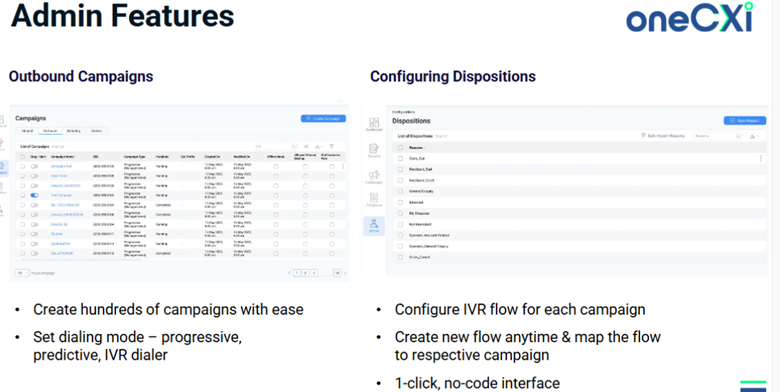
Ozonetel:
Ozonetel empowers businesses with code-light customization through open APIs and intuitive configuration tools. Teams can easily modify IVR flows, dashboards, and workflow automations to adapt to changing business needs — all without relying on third-party developers. Built on an in-house CPaaS foundation, Ozonetel ensures complete flexibility, faster implementation, and greater control over customer experience design from day one.
Genesys:
Genesys users often report restricted customization options that make it difficult to tailor the platform to specific business requirements. Building custom reports or modifying workflows frequently demands developer assistance or partner support, which increases costs and delays execution. The system’s complex interface and limited data integration flexibility further complicate troubleshooting and adaptability. As a result, organizations face slower time-to-market, reduced scalability, and a higher total cost of ownership (TCO).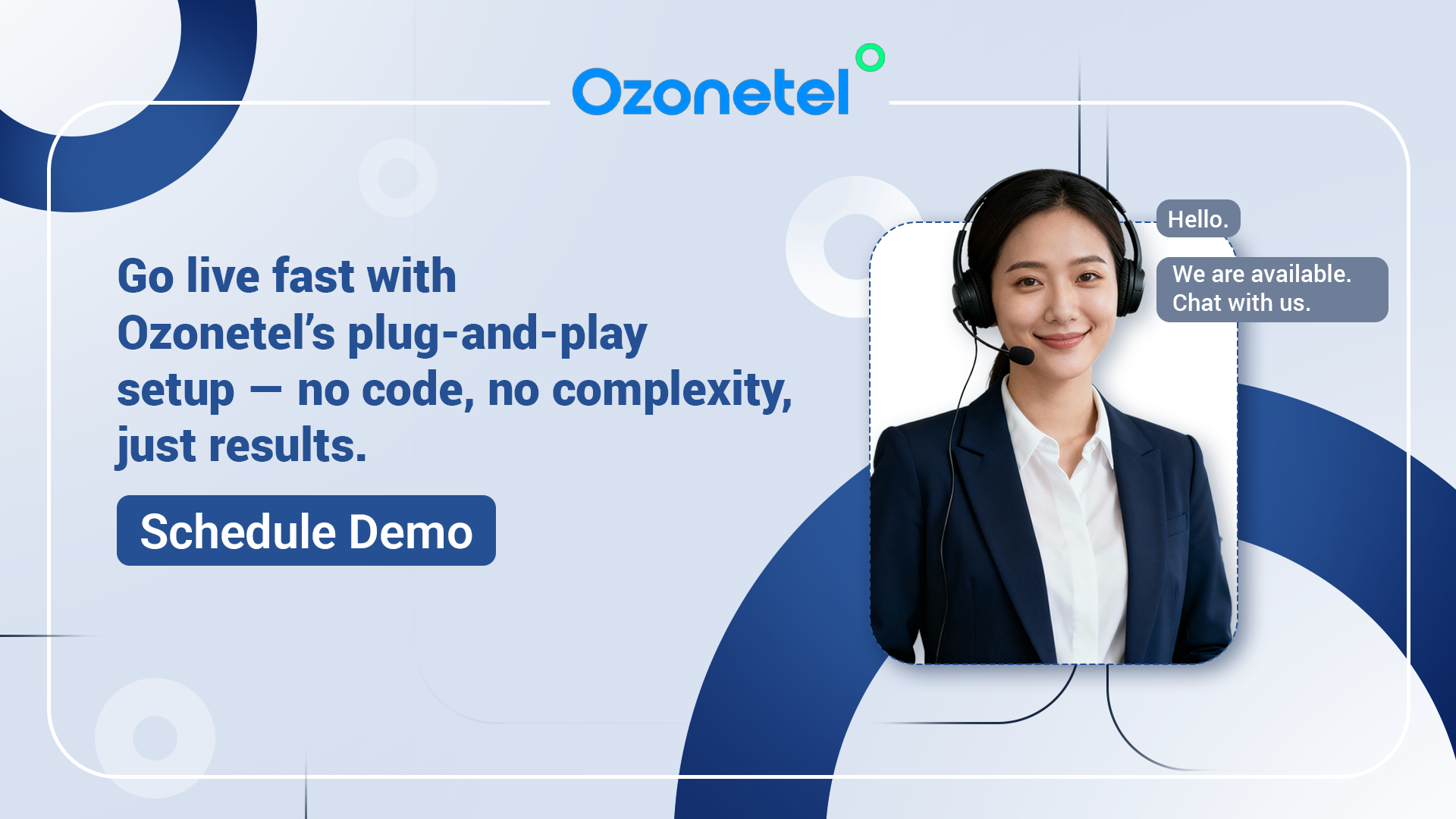
Ozonetel vs Genesys: Pricing Capabilities
Genesys: Genesys follows a subscription-based pricing model, often including infrastructure and partner costs, making it expensive for mid-sized businesses to adopt or scale. Setup and configuration usually require technical expertise, adding hidden costs to ownership. Its pricing plans range from $75 to $155 per user/month for voice-only, digital-only, and multi-channel options. While the upfront cost may appear reasonable, expenses escalate as customers require additional tools for comprehensive digital interactions.
Ozonetel USP: What Sets It Apart
Discover what makes Ozonetel the smarter, faster, and more flexible alternative for modern contact centers.
1. No-Code/Zero-Code Platform
Ozonetel’s intuitive no-code interface lets businesses design, deploy, and modify IVRs without writing a single line of code.
- Go live in hours — no IT dependency or coding expertise required.
- Drag-and-drop builder enables instant IVR and workflow customization anytime.
- Empowers business users to own and optimize customer journeys effortlessly.
2. Ultrafast Deployment
Ozonetel enables full cloud contact center setup within 24 hours, ensuring faster go-live and ROI.
- End-to-end setup in hours, not weeks.
- No lengthy implementation cycles or complex infrastructure needs.
- Perfect for fast-scaling businesses and seasonal spikes.
3. Deep CRM & App Integrations
Pre-built integrations with Salesforce, Zoho, Freshdesk, LeadSquared, Kapture, and more deliver instant connectivity.
- Unified agent view with CTI, click-to-dial, and live data sync.
- Open APIs allow seamless integration across marketing, HR, and ERP tools.
- Reduces dependency on third-party vendors — cutting cost and complexity.
4. Carrier Flexibility (BYOC)
Bring Your Own Carrier (BYOC) for complete control over telephony operations.
- Retain your existing carrier and optimize call costs.
- Enjoy better call quality and reliability through preferred networks.
- Flexibility Genesys users often miss.
5. All-in-One Unified Platform
Everything your contact center needs — built on one intelligent platform.
- Includes Auto Dialers, ACD, Advanced IVR, Voice AI, Live Monitoring, Screen Recording, SMS, and Omnichannel routing.
- AI-led analytics and open APIs for true scalability and personalization.
- Simplifies operations, reduces tool overload, and ensures data continuity.
6. Self-Service Configuration
Empowers business teams to adapt instantly — without waiting on IT.
- Configure multi-level menus, after-hours routing, or call-back flows on demand.
- Make quick updates aligned with campaign or season changes.
- Faster innovation cycles with zero technical bottlenecks.
7. Instant Scalability
Expand effortlessly as your business grows.
- Add agents, campaigns, or channels instantly — no reconfiguration hassles.
- Scale up or down in minutes to match call volumes.
- Designed for enterprise reliability with startup agility.
Overall Verdict
While Genesys remains a proven enterprise-grade CX platform, its complex setup, cost, and limited customization restrict agility for fast-growing businesses. Ozonetel delivers a more modern, AI-driven, and scalable alternative — designed for today’s omnichannel, automation-first environment.
With its unified approach across CCaaS, CPaaS, UCaaS, and AI, Ozonetel offers the perfect balance of power, simplicity, and value, making it an ideal choice for businesses ready to transform their customer experience.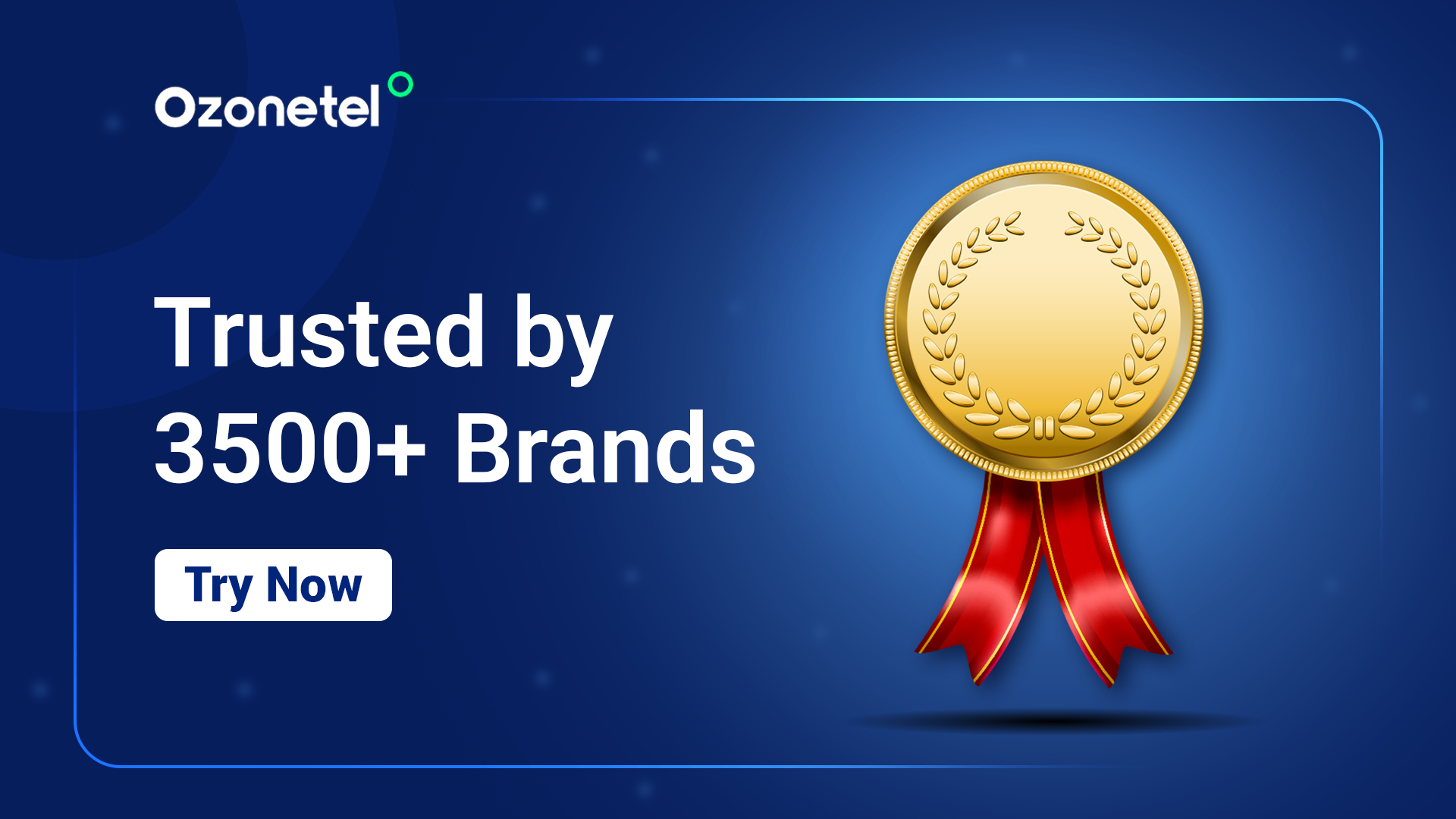
Ozonetel helps teams deliver CX faster with lower costs
Prashanth Kancherla
Chief Operating Officer, Ozonetel Communications
Over the past decade, Prashanth has worked with 3000+ customer experience and contact center leaders...
Chief Operating Officer, Ozonetel Communications
Over the past decade, Prashanth has worked with 3000+ customer experience and contact center leaders to comprehensively understand the need for effective and efficient customer communications at every step of their journey with a brand. Deeply embedded in today’s CCaaS ecosystem, he has been instrumental in Ozonetel's growth and contributed in various roles including product management, sales, and solution architecture.
Frequently Asked Questions
Ozonetel’s cloud-native architecture enables businesses to go live in days—not weeks or months like many traditional enterprise platforms. With minimal IT dependencies and simple API integrations, deployment is frictionless even at scale. In contrast, Genesys implementations often involve complex setup cycles and customization layers that can extend timelines, especially for mid-market or multi-location rollouts.
Ozonetel’s 24/7 customer support is known for its hands-on, personalized approach. During high-traffic periods or service disruptions, businesses often cite Ozonetel’s faster response times and proactive resolution compared to Genesys’ ticket-driven escalation model. The local presence and dedicated success teams make Ozonetel a more agile partner in critical moments.
Genesys offers extensive analytics capabilities, but Ozonetel bridges the gap with real-time dashboards, customizable reports, and AI-powered conversation intelligence. Users gain actionable visibility into agent performance, call quality, and customer sentiment without needing external tools or data teams. Ozonetel’s unified analytics also eliminate silos—something that’s harder to achieve with Genesys’ multi-module architecture.
Ozonetel is built to scale horizontally. Whether it’s a startup expanding across regions or an enterprise managing thousands of concurrent interactions, the platform adapts without costly migrations or infrastructure overhauls. Genesys offers strong scalability too, but with higher costs, licensing complexities, and longer configuration cycles that can slow down agility as you grow.
Genesys has long been associated with advanced automation, but Ozonetel has quickly closed the gap with AI-first tools like conversational intelligence, real-time agent assist, and customer journey automation. What sets Ozonetel apart is accessibility—AI is embedded natively into the platform, making it easier and faster for teams to deploy without external integrations or added costs.
